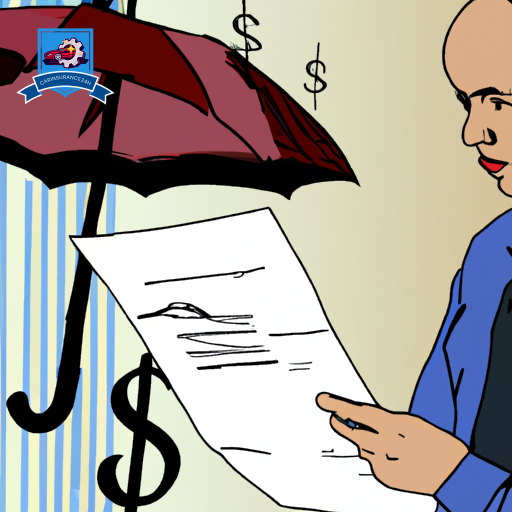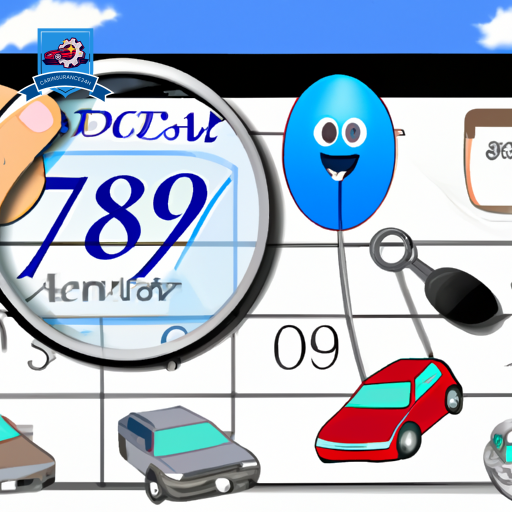Discovering your car insurance has not been renewed can lead to a maze of confusion and uncertainty. The initial step is to meticulously understand the reasons behind the non-renewal by your insurer. This could be due to a variety of factors ranging from an increase in claims, moving violations, or changes in the insurer’s underwriting criteria.
It’s crucial to review your insurance policy and contact your insurer for a thorough explanation. Such an understanding not only clarifies the situation but also sets the stage for the subsequent steps one must undertake to secure their position.
The journey to resolving this issue involves a series of strategic actions, the first of which beckons a closer look.
Understand the Reasons

Understanding the reasons behind your car insurance company’s decision not to renew your policy is a critical first step in addressing the situation. Insurers may choose not to renew policies for various reasons, such as a change in their underwriting criteria, a history of claims, or even moving to a region they do not cover. Knowing the specific reason can guide your subsequent actions, particularly in seeking insurance alternatives and conducting policy comparisons.
Once you are informed about the reasons for non-renewal, you can initiate a process of policy comparison. This involves researching other insurance providers to understand what they offer and at what cost. Policy comparison is not only about finding the lowest premium but also about identifying coverage that meets your specific needs. Factors such as coverage limits, deductibles, and additional benefits should be carefully considered. This meticulous approach ensures that you do not find yourself underinsured or paying for unnecessary coverage.
Exploring insurance alternatives is another critical step. Depending on the reason for non-renewal, you might find that some insurers are more accommodating or specialize in coverage for drivers in your situation. For instance, if your policy was not renewed due to multiple traffic violations, companies that offer specialized high-risk insurance might be more suitable.
Understanding the reasons for non-renewal, engaging in a thorough policy comparison, and exploring insurance alternatives are fundamental actions that pave the way towards securing a new car insurance policy that aligns with your needs and circumstances.
Review Your Insurance Policy

Upon receiving notification that your car insurance will not be renewed, it is important to thoroughly review your insurance policy. This examination will help you understand the specific terms of your policy and identify the criteria for renewal.
Such an understanding is essential for evaluating your next steps and ensuring you are adequately informed.
Understand Policy Terms
Reviewing your insurance policy thoroughly is the first step in comprehending the terms and conditions that govern your coverage. It’s crucial to understand the specifics of what your policy covers and, equally important, what it does not. This knowledge can greatly influence your actions if your car insurance is not renewed.
-
Policy exclusions: Identify scenarios or damages that your policy does not cover.
-
Coverage limits: Understand the maximum amount the insurer will pay for covered losses.
-
Deductible amounts: Know the out-of-pocket expenses you’re responsible for before coverage kicks in.
-
Policy duration: Be aware of the start and end dates of your coverage.
Identify Renewal Criteria
To guarantee continuous protection, closely inspect your insurance policy for specific renewal criteria set by your insurer. Understanding these criteria is important for maintaining your car insurance without interruption.
Insurers often outline conditions under which your policy can be renewed, including timely premium payments, reporting changes in driving habits, or vehicle usage. Additionally, renewal discounts may be available for those who meet certain requirements, such as a clean driving record or continuous coverage with the company.
It’s also an opportune time to think about coverage adjustments to better suit your current needs. Evaluating your policy’s renewal criteria allows you to take proactive steps in ensuring your car insurance is up to date, potentially saving you from unforeseen lapses in coverage.
Contact Your Insurance Company

Upon discovering that your car insurance policy will not be renewed, it is imperative to immediately get in touch with your insurance provider.
This initial contact is essential for understanding the specific reasons behind the non-renewal and to explore any potential steps you can take next.
Engaging in this dialogue not only clarifies your position but also opens the door to possible solutions or alternatives.
Reasons for Non-Renewal
Understanding the reasons behind your car insurance company’s decision not to renew your policy is an important first step in addressing the situation. This knowledge is vital for going through the cancellation process and identifying any coverage gaps that might have influenced their decision.
Common reasons for non-renewal include:
- Repeated traffic violations or accidents: A history of risky driving behavior can lead insurers to view you as a high-risk customer.
- Non-payment of premiums: Consistent failure to pay your insurance premiums on time.
- Changes in the insurer’s risk assessment: Modifications in the company’s policy or operational area might exclude your coverage.
- Legal or regulatory issues: Any legal or regulatory actions against you can prompt an insurer to reconsider your policy renewal.
Next Steps Inquiry
After identifying the reason for your car insurance policy’s non-renewal, the next logical step involves directly contacting your insurance company for further clarification and guidance.
This communication is crucial for understanding the specific circumstances under which your policy was not renewed and what steps, if any, you can take to address the situation. It is also the opportune moment to inquire about any legal recourse or consumer rights that may be available to you.
Insurance laws vary by state, so it’s essential to be informed about your rights and the company’s obligations. Engaging in this dialogue not only clarifies your position but also outlines the potential for policy reinstatement or the necessity to seek alternative coverage.
This proactive approach guarantees you are well-informed and prepared to take the next steps in securing car insurance.
Check Your State’s Laws

It’s important to familiarize yourself with the specific insurance regulations and requirements of your state when faced with a non-renewal of your car insurance policy. Each state has its own set of rules concerning insurance policies, including what insurers can and cannot do when it comes to not renewing a policy. Understanding these laws can help you determine your next steps, potentially involving legal representation if you believe the non-renewal was unjust. Additionally, being aware of the state penalties for driving without insurance is essential, as it could influence your urgency in finding a new policy.
When checking your state’s laws, consider the following aspects:
- Notification Requirements: Most states require insurers to provide notice of non-renewal a certain number of days before the policy expires. This period can vary significantly from one state to another.
- Reasons for Non-Renewal: States often have regulations about what constitutes a valid reason for an insurer to decide not to renew a policy. Knowing these can provide insight into whether your non-renewal was according to the law.
- Appeal Process: Some states offer a process to appeal a non-renewal decision. Understanding this process can be crucial if you wish to contest the decision.
- Penalties for Uninsured Driving: Being aware of the penalties for driving without insurance in your state is essential. This knowledge can motivate you to expedite finding a new insurance provider to avoid legal issues.
Armed with knowledge of your state’s laws, you can better navigate the situation of a car insurance non-renewal, including seeking legal representation if necessary and avoiding state penalties for uninsured driving.
Compare Other Insurance Options

Exploring a variety of insurance options is a critical step once you’ve encountered a non-renewal of your current car insurance policy. This process involves thorough research and analysis, focusing on price comparison and coverage limits among available insurers. It is essential to approach this task with a methodical strategy, ensuring you make an informed decision that aligns with your specific needs and budget.
Begin by compiling a list of potential insurance providers, including both national brands and local companies. This diverse pool ensures a comprehensive view of the market, offering insights into varying levels of coverage and pricing structures. Utilize online tools designed for price comparison, which can swiftly present a side-by-side analysis of premiums, deductibles, and coverage limits. These platforms can significantly streamline the research process, offering a broad perspective on the competitive landscape.
While price is a crucial factor, it should not be the sole criterion for selection. Delve into the details of each policy’s coverage limits, assessing how they align with your requirements. Consider scenarios such as property damage, liability, and personal injury protection, evaluating the adequacy of coverage provided. It’s also advisable to review customer service ratings and claims satisfaction levels for each insurer, as these aspects play a vital role in the overall experience.
Improve Your Risk Profile

Enhancing your risk profile can substantially increase the likelihood of securing a more favorable car insurance policy upon renewal or with a new insurer. Insurers assess risk based on a variety of factors, including your driving habits and credit score. Taking deliberate steps to present yourself as a lower-risk client can be instrumental in not only ensuring your policy is renewed but also in potentially lowering your premiums.
Improving your risk profile involves a multifaceted approach, including:
- Adjusting Driving Habits: Safe driving not only reduces the likelihood of accidents but also signals to insurers that you are a low-risk driver. Consider adopting defensive driving techniques and adhering strictly to traffic laws to improve your driving record over time.
- Enhancing Credit Score: Many insurers consider your credit score when determining your premiums. A higher credit score reflects financial responsibility, which insurers equate with lower risk. Work on paying down debts and making timely payments to improve your credit score.
- Completing a Defensive Driving Course: Some insurance companies offer discounts or incentives for drivers who complete accredited defensive driving courses. These courses can improve your driving skills and demonstrate your commitment to safe driving.
- Reducing Mileage: Lower annual mileage can lead to lower insurance premiums, as less time on the road means a lower chance of getting into an accident. If possible, consider carpooling, using public transportation, or telecommuting to reduce your mileage.
Apply for New Coverage

Should your car insurance policy not be renewed, seeking out new coverage promptly is a critical next step. This process involves evaluating your coverage eligibility and exploring available policy discounts to make certain that you secure the best possible terms for your new policy. It’s essential to approach this task with diligence and a well-structured plan.
Commencing your search for a new policy, consider the following steps:
- Evaluate Your Needs: Understand the level of coverage required based on your vehicle type, usage, and personal circumstances.
- Research Insurers: Look for insurance companies with strong financial ratings and customer service records.
- Compare Quotes: Obtain quotes from multiple insurers to compare rates and coverage options, keeping coverage eligibility and policy discounts in mind.
| Step | Action | Focus |
|---|---|---|
| 1 | Evaluate Your Needs | Determine necessary coverage level |
| 2 | Research Insurers | Financial stability and service quality |
| 3 | Compare Quotes | Rates and coverage options |
| 4 | Review Policy Terms | Exclusions, deductibles |
| 5 | Apply Promptly | Guarantee continuous coverage |
As you navigate this process, prioritize insurers that offer policy discounts which you may be eligible for—such as those for safe driving, multi-car policies, or advanced payment. Understanding and leveraging your coverage eligibility can notably reduce your premiums and provide you with a policy that better suits your needs.
Applying for new coverage after a non-renewal may seem challenging, but with a strategic approach, you can secure a policy that offers both protection and value.
Plan for Future Renewals

After securing a new car insurance policy, it is imperative to implement strategies for guaranteeing its renewal in the future. Planning ahead can prevent the stress and inconvenience of finding yourself without coverage unexpectedly.
To guarantee continuous protection and to avoid the pitfalls that may lead to non-renewal, consider the following steps:
-
Set Up Renewal Reminders: In today’s digital age, it’s easy to overlook renewal dates amid our busy schedules. Utilize calendar apps, email alerts, or any reminder system that works best for you. This proactive approach guarantees that renewal dates do not pass unnoticed, providing ample time to prepare any necessary documentation or to address potential issues.
-
Engage in Budget Planning: Insurance premiums can be a significant expense, so it’s critical to factor this into your financial planning. By setting aside funds regularly, you can avoid the financial strain when it’s time to renew. Budget planning also provides the opportunity to review your policy and make any adjustments to coverage that may reduce costs.
-
Maintain a Good Driving Record: Insurers often consider your driving history when determining renewability and premium rates. Adopting safe driving habits reduces the risk of accidents and traffic violations, which can lead to more favorable terms upon renewal.
-
Regularly Review and Update Your Policy Details: Life changes such as moving, changing jobs, or altering your driving habits can affect your insurance needs. By reviewing and updating your policy details regularly, you ensure that your coverage remains adequate and reflective of your current situation, which facilitates smoother renewals.
Planning for future renewals through these steps not only enhances your chances of continuous coverage but also can lead to more favorable insurance terms and costs.
Frequently Asked Questions
How Does a Non-Renewal of Car Insurance Affect My Credit Score?**
A non-renewal of car insurance does not directly impact your credit score as it does not affect payment history, a critical factor in credit evaluation. Credit repair efforts should focus on other financial behaviors instead.
Can I Appeal a Non-Renewal Decision Directly With the Insurance Regulatory Body in My State?**
Yes, individuals can initiate a regulatory appeal regarding a non-renewal decision within their state’s jurisdiction. This process allows policyholders to contest decisions, ensuring their rights are upheld in accordance with state insurance regulations and guidelines.
Are There Any Short-Term Insurance Options Available While I’m Searching for a New Policy?**
Yes, temporary coverage options are available for individuals in the midst of policy shopping. These short-term insurance solutions provide essential protection while you explore and secure a new, suitable long-term car insurance policy.
How Does a Non-Renewal Notice Impact My Eligibility for Discounts With Other Insurers?**
Receiving a non-renewal notice may impact your discount eligibility with new insurers during policy shopping. It’s advisable to disclose this information upfront, as it can influence the terms and discounts offered by other insurance companies.
Is It Possible to Obtain Insurance From a Provider in Another State if I’m Facing Difficulties Finding Coverage Locally After a Non-Renewal?**
Obtaining insurance from another state may seem like a cunning plan, yet it’s essential to contemplate state regulations and coverage limits, which could greatly impact the feasibility and legality of such an approach for consumers.










